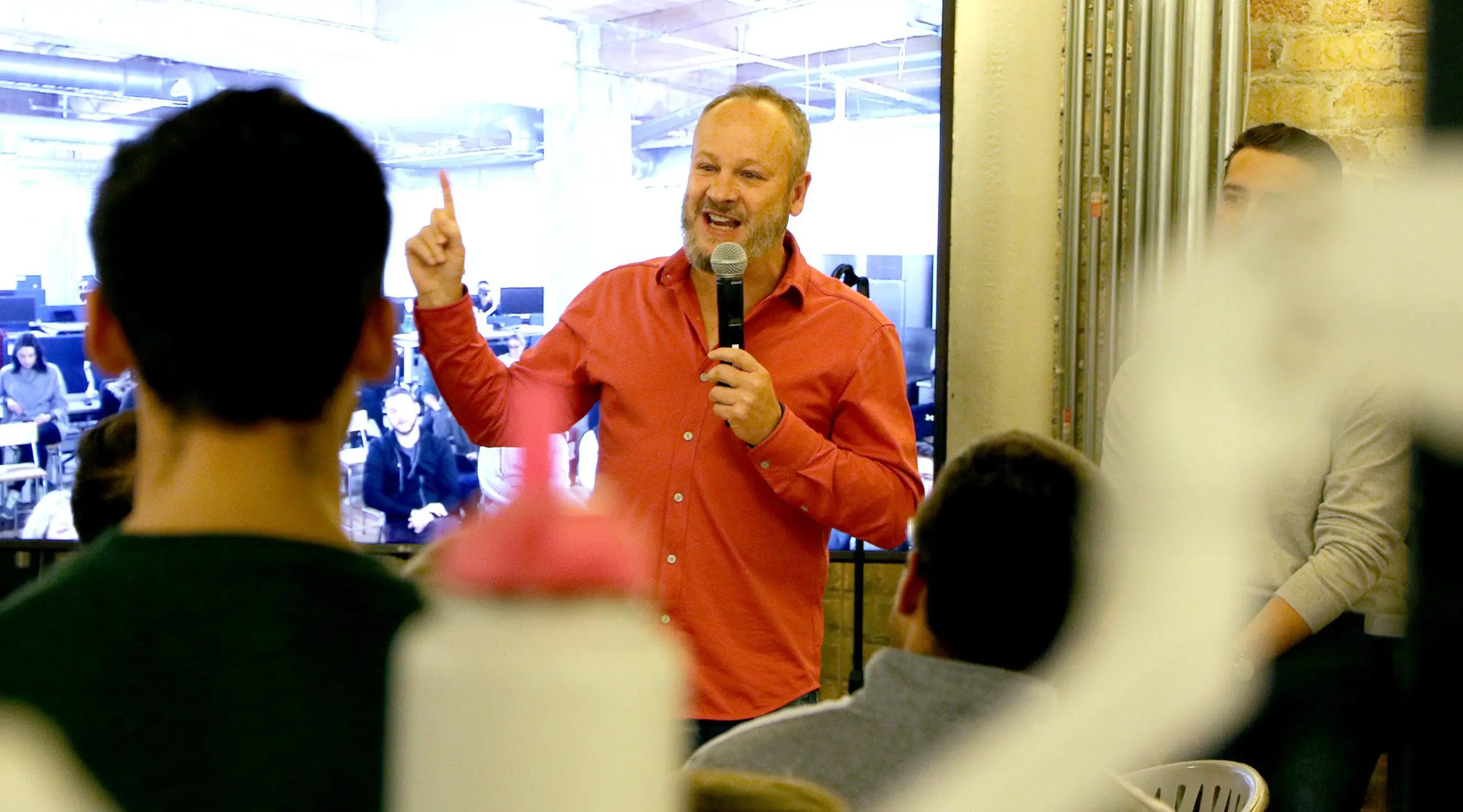Baseball is back. Major League Baseball started its season last week, and it looks different. Most notably, games are being played without fans and spitting by the players is banned. But, different is what we get because of the coronavirus pandemic.
I long for a ballgame on a hot summer day with a cold beer in hand at Wrigley Field, also known as “the Friendly Confines”. I miss the joy of it all. Who doesn’t?
But this post isn’t entirely about baseball. I miss more than just baseball. Here’s what I mean. I miss ALL of my “friendly confines” — however you want to define it. I miss the friendly confines of my office, too. I miss sitting next to George and Megan and Dom, and having a cold beer with them at the end of a long day, from the keg in our office. I miss seeing, feeling and touching our fast growing Chicago startup’s culture and our growth. I miss the jam sessions with the many talented musicians who joined our company rock band. I miss the slack message imploring me to head straight to a conference room to join an impromptu strategy session. I miss collaborating face to face, building a business practically on top of one another. I miss my office! I miss the commute, believe it or not. I miss slogging through the rain and train delays and forgetting to pack a lunch. I miss Farmer’s Fridge. You get the point.
Let’s Stop Kidding Ourselves
I’ve seen the statistics: productivity hasn’t gone down since we’ve all gone remote. This has led to Facebook, Twitter, and plenty of others enacting indefinite and even permanent remote-work policies.
Research conducted before the pandemic found that remote work offers significant positive effects for both employee and employer. One is productivity. What Accenture discovered is not, it seems, a fluke: Output often rises when people work remotely. In 2012, the U.S. Patent & Trademark Office, headquartered in Northern Virginia, began a program allowing patent examiners to live anywhere. For those who chose to work remotely, productivity rose by 4.4 percent, according to a study last fall by Prithwiraj Choudhury, a professor at Harvard Business School, and two colleagues. A 2015 case study by Nicholas Bloom, a professor of economics at Stanford University, and others found that when one Chinese travel agency assigned a random group of employees to work remotely for nine months, their productivity went up by 13 percent, generating an increase of roughly $2,000 in annual profits per employee. (It later rose even higher, to 20 percent.) The company’s chief executive had actually expected productivity to decrease; he figured the shift would yield savings that made up for the lost output. “But it was win-win,” Bloom says. As far as could be determined, the boost in productivity derived from employees being able to work more efficiently, without interruptions from their colleagues (one employee reported that working from home was a welcome respite from her former cubicle-mate, who had a habit of loudly clipping her toenails). People also worked more hours: There was no commute to make them late for their shifts, and even their tea breaks were briefer.
Working at home can also improve how employees feel about their jobs. Historically, “research has shown a powerful correlation between telecommuting and job satisfaction,” says Timothy Golden, a professor of management at Rensselaer Polytechnic Institute who has studied telework for two decades. People tend to prize the greater flexibility in setting their work hours, the additional time with family members, the reduced distractions. Even with the onslaught of online messages confronting teleworkers, “No one’s stopping by your cubicle standing over you saying, ‘Hey, I need this,’ or ‘I need your help right now,’” Golden told me recently.
There’s a Downside to the Upside
Productivity may not be going down. But remember: many of us are still working on long-term projects that began before the pandemic. Are those projects moving along at the same pace and with the same intensity as before? I’m not so sure.
I think we’ll see the consequences not in the short term, but one or two years down the line. This is because I believe you simply can’t innovate and reproduce the “serendipity” of novel ideas through Zoom. Let’s face it, it takes energy and a mindset change to maintain connections with teammates, let alone co-workers other departments of the company. Work from home is likely to stimulate other debates around a disproportionate work-life balance, increased isolation and loneliness, risk of overworking, distractions of home-life and just plain FOMO from being at home.
This is not a “push” to go back into the office. We need to maintain safe distance and be reasonable for as long as it’s necessary until we are clear of this thing.
In the meantime, I wonder how many of us will be returning to the office before the baseball playoffs …
